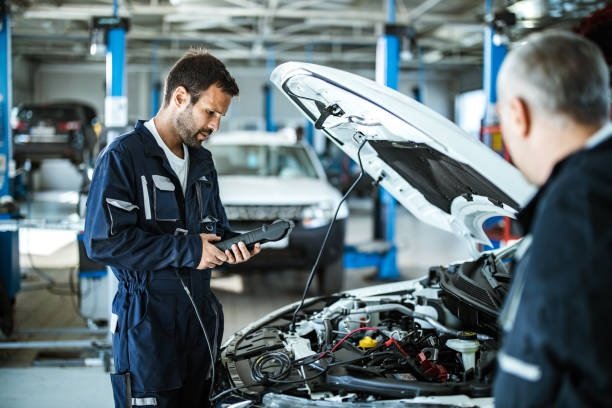For motorists worldwide, ensuring the safety, reliability, and compliance of their vehicles is paramount. Car inspection plays a pivotal role in this process, providing a comprehensive assessment of a vehicle’s condition, functionality, and compliance with regulatory standards. In this article, we’ll delve into the significance of car inspection, its various aspects, and why every vehicle owner needs to prioritize this crucial maintenance procedure.
Upholding Safety Standards
Safety is perhaps the most critical aspect of car inspection. Regular inspections help identify potential safety hazards such as worn-out brakes, faulty lights, malfunctioning steering systems, and tyre defects. Addressing these issues promptly can prevent accidents, injuries, and even fatalities on the road. By upholding safety standards through regular inspections, motorists contribute to creating a safer driving environment for themselves and others sharing the road.
Ensuring Reliability and Performance
Car inspection goes beyond safety—it also ensures the reliability and optimal performance of a vehicle. Through thorough checks of the engine, transmission, suspension, and other critical components, inspectors can detect issues that may affect the vehicle’s performance or longevity. By addressing these issues early on, motorists can avoid unexpected breakdowns, costly repairs, and inconvenience on the road. Regular inspections thus play a crucial role in maintaining the reliability and functionality of vehicles, ensuring smooth and trouble-free driving experiences.
Preventing Environmental Pollution
In today’s environmentally conscious world, car inspection also plays a role in preventing pollution and minimizing the environmental impact of vehicles. Inspections assess the emissions of vehicles to ensure they comply with environmental regulations and emission standards. Identifying and addressing issues such as excessive exhaust emissions or malfunctioning catalytic converters can help reduce air pollution and mitigate the adverse effects of vehicle emissions on public health and the environment.
Compliance with Regulatory Standards
Car inspection is often a legal requirement in many jurisdictions, with regulations mandating periodic inspections to ensure vehicles meet safety, emissions, and operational standards. Failure to comply with these regulations can result in fines, penalties, or even the suspension of vehicle registration. By conducting regular inspections and ensuring their vehicles meet regulatory standards, motorists not only avoid legal consequences but also contribute to promoting road safety and environmental protection in their communities.

Facilitating Vehicle Transactions
Car inspection also plays a crucial role in facilitating vehicle transactions, such as buying, selling, or transferring ownership of vehicles. Inspections provide potential buyers with assurance about the condition and safety of a vehicle, helping them make informed decisions and avoid purchasing defective or unsafe vehicles. Similarly, inspections help sellers demonstrate the value and quality of their vehicles, leading to smoother and more transparent transactions in the automotive market.
Prioritizing Safety, Reliability, and Compliance
Car inspection is a fundamental aspect of responsible vehicle ownership, essential for ensuring safety, reliability, and compliance with regulatory standards. By upholding safety standards, ensuring reliability and performance, preventing environmental pollution, and complying with regulatory requirements, motorists contribute to creating a safer, cleaner, and more sustainable transportation ecosystem. Therefore, every vehicle owner should prioritize regular car inspection as part of their maintenance routine, recognizing its significance in promoting road safety, protecting the environment, and ensuring the overall well-being of motorists and the community at large.



